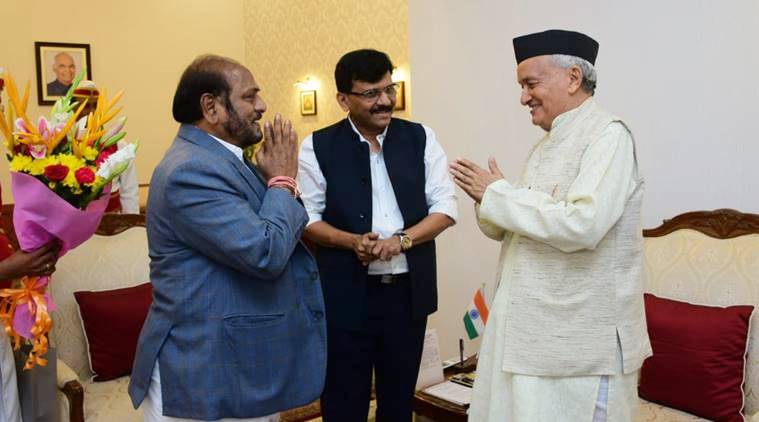The BJP received a jolt when the Shiv Sena joined hands with the NCP and Congress after 2019 Assembly polls. Since then the three-party Maharashtra government has been in a fire-fighting mode.
Politics, as everyone knows, has always been about cut-throat competition. Politics is subterfuge. Politics, at times, is about deceiving friends and embracing foes; it is about winning. Politics is also about keeping at least one window open for arch-rivals. Politics is everything that normal human beings cannot think of. However, politics, though brutal, was rarely played with a jilted-lover mindset.
The BJP received an unbearable jolt when the Shiv Sena, after the Maharashtra state assembly polls in November 2019, refused to sign on the dotted line and did the unthinkable by joining hands with the NCP and Congress. Since then, the three-party Maharashtra government has been perennially in a fire-fighting mode. It’s understandable that an upset BJP would try to dislodge the Uddhav Thackeray-led ministry. What is, however, difficult to accept is the means for the purpose. One has to be super naive to believe that the actions unleashed by various central agencies have no politics to them.
Let’s take a look at some facts.
First, the case of deputy chief minister Ajit Pawar. It was the alleged involvement of Ajit Pawar in the irrigation scam that helped the BJP win office in 2014. If it was the fiery campaign against Sharad Pawar by the BJP’s late Gopinath Munde, helped by officials such as G R Khairnar, that propelled the BJP-Sena alliance to power for the first time in 1995, the corruption charges made by Devendra Fadnavis and others against Ajit Pawar helped the saffron siblings end the 10-year Congress-NCP rule in 2014. In office, the BJP-Sena government did precious little. The irrigation scam resurfaced in 2019 ahead of state elections when BJP leaders claimed that Ajit Pawar’s rightful place was in jail. What is incredible is that the BJP tried to make the same Ajit Pawar deputy chief minister in that ill-fated, short-lived Fadnavis government.
It was the BJP’s second consecutive failure in forming the government, the first being its inability to win over the Sena. It is not easy to digest two failures. Now that Ajit Pawar and his relatives are under the IT radar, the question is: Would this have happened had Ajit Pawar stayed with the BJP? Two state politicians — Harshvardhan Patil and Sanjay Patil, BJP MP from Sangli — recently said they have stopped worrying about central agencies since they joined the BJP.
Second, the case of former home minister Anil Deshmukh, who was arrested recently, on corruption allegations made by former Mumbai Police Commissioner Param Bir Singh. Central agencies have investigated Deshmukh on the basis of a letter written by Singh to the chief minister. Singh himself has admitted that he doesn’t have any proof of Deshmukh’s alleged wrongdoings. This is not to give a clean chit to Deshmukh who lacked the skills and maturity to run this crucial ministry. Not to forget, it was the BJP that made Deshmukh a minister for the first time in 1995.
Similarly, it was the BJP government that favoured Param Bir Singh for the powerful commissionerate of Thane. Singh had a special rapport with BJP bigwigs and was used to rein in the Sena. Ironically, it was Singh, who, in his capacity as the Director General (DG) of the Maharashtra Anti-Corruption Bureau (ACB), gave a clean chit to Ajit Pawar in the alleged scam involving 12 Vidarbha Irrigation Development Corporation (VIDC) projects. The short-lived Fadnavis government, where Ajit Pawar was deputy CM, too had absolved the latter of wrongdoings in the alleged irrigation scam. Since Ajit Pawar was cleared by a BJP government in the irrigation issue, he is now being probed for his role in buying loss-making sugar cooperatives.
These absurd political developments beg the question: Why is the BJP so desperate to dislodge the Sena-NCP-Congress government?
The answer lies in the 2024 general elections and the BJP’s inability in making inroads in some big states. After Maharashtra, the BJP failed to cobble a winning alliance in Tamil Nadu and failed miserably in West Bengal. Along with Maharashtra, these states together send 129 MPs to the Lok Sabha. The increasingly hostile political atmosphere in Rajasthan, Himachal Pradesh, Haryana and Gujarat and the uncertainty in Punjab make the upcoming assembly elections in Uttar Pradesh crucial for the BJP. Though it is too early to hazard a guess about UP results, it is clear that the party will find it extremely difficult to retain, leave alone improve, its tally of 312 of 403 seats in the assembly. Yogi Adityanath was not the BJP’s face in the last assembly elections. This time he is. The polarising politics he has unleashed will test the BJP’s resolve in a state that sends 80 MPs to the Lok Sabha.
After UP, it is Maharashtra with 48 seats that sends the largest contingent of MPs. If things go wrong for the BJP in UP in 2024, Maharashtra will become crucial. The NDA, which included the BJP and Sena, won 41 seats in 2019, of which 23 belonged to the BJP. Now the situation is evenly poised with the combined strength of Sena-NCP-Congress matching that of the BJP. If this three-party government survives till the next parliamentary elections, the BJP will have a tough battle ahead. Hence, the attempt to pull down the Maharashtra Vikas Aghadi government.
In politics, such attempts are justified. But not so reasonable are the ways pursued to achieve the goal. “Tum agar mujhko na chaho to koi baat nahi (It’s ok if you don’t like me)” is acceptable in politics, but never has “Tum kisi aur ko chahogi to mushkil hogi (But you cannot like someone else)” been a precondition. Developments in Maharashtra, after West Bengal, indicate the changing contours of politics.
The writer is Editor, Loksatta
Source: Read Full Article

